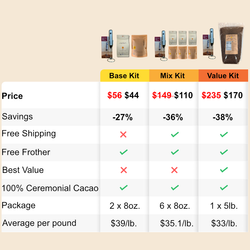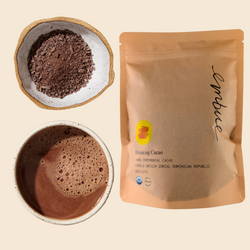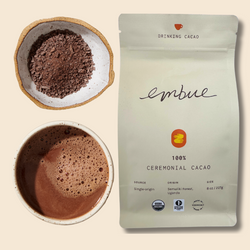Why Allulose As Our Sweetener?
It Checks All The Boxes!
• All Natural
• Organic and Non-GMO
• Almost No Calories
• No Blood Sugar Spikes
• No microbiome damage or bloating
• No Tooth Decay
• And tastes great!

Health & Taste Are Our #1 Priority
We have long been focused on a healthy, nutrient-dense diet in our personal lives, and so have naturally avoided cane sugar and other artificial sweeteners. At home, we prefer local options like honey & maple syrup.
In contemplating an eating bar, the top priority for us was that it be healthy & delicious. Most sweeteners are either not great for our health, or taste pretty funny. When we found allulose, we realized it didn't have to be one or the other. After in-depth research and some product experimentation, we knew we had a winner!
About Allulose

Allulose is classified as a natural 'rare sugar' because it's in a number of fruit and vegetables but in very small quantities. Figs, beets, corn, and raisins all have small quantities of allulose. It has the taste and mouthfeel of cane sugar but about 70% as sweet gram for gram. Allulose has 90-95% less calories then cane sugar. As it only available in nature in small quantities, human bodies don't have the bacteria in our gut to process it. Its new, the FDA accepted as GRAS (Generally Recognized As Safe) recently in Dec. 2019. Allulose is created using a mash of corn or beets and adding a enzyme to transform it into Allulose. Our Allulose is organic and non-GMO, this is important as some allulose comes from corn.
Almost No Calories
One of the best things about Allulose is the low calories: Allulose at 4 calories per 10 g vs. cane sugar at 40 calories per 10g. "at least 90% is excreted by the kidneys without being metabolized. This means that in a functional sense allulose has 95% fewer calories than sucrose and is why the FDA determined in 2019 that it does not need to be listed under total or added sugar."
Source - 1, 2
No Blood Sugar Spikes
Chocolate bars cause blood sugar spikes, this is due to sugar and other additives. Allulose has been shown in studies not to raise blood sugar or insulin levels. In animal studies, there is evidence that it lowers blood sugar, increases insulin sensitivity and most interesting protects the pancreas's insulin-producing beta cells. In another study comparing allulose, sugar and water. Those fed allulose had less belly fat gain, better blood sugar response and better beta cell function.
"research has found that allulose isn’t actually converted to energy like more common sugars, so it doesn’t raise blood glucose or insulin levels after you eat it." - New York Times
Source 1, 2, 3, 4, 5
Cacao Bar vs. Chocolate
Naturally your body will reject chocolate and respond with a large unhealthy blood sugar spike. Avoid chocolate! Eat Cacao Bar!

No microbiome damage or bloating
Our gut microbiome is important, ultra-process food like chocolate disrupts the healthy natural balance. Causing across-the-board health problems. Allulose resists fermentation by your gut bacteria, thus little effect on your microbiome. As there is no fermentation in the gut there are no gas or bloating problems.
Source 1

Allulose vs. Other Sweeteners
Watch out for sugar and 'natural sugars' as they are high in calories. Where artificial sugars have negative effects on your body.
Avoid sugar! Eat Cacao Bar!

No Tooth Decay
"allulose is different from other sugars in that it is not metabolized by the human body in the same way as table sugar. It has fewer calories, produces only negligible increases in blood glucose or insulin levels, and does not promote dental decay." Whereas chocolate is loaded with sugar and damages your teeth.
Source 1







 Non-GMO
Non-GMO
 Plant based
Plant based
 Keto
Keto
 Paleo
Paleo